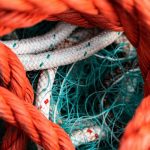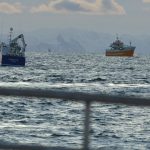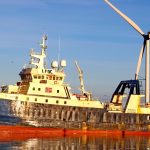Scotland’s Marine Bill today received Royal Assent.
The Marine (Scotland) Act provides a framework which will help balance competing demands on Scotland’s seas. It introduces a duty to protect and enhance the marine environment and includes measures to help boost economic investment and growth in areas such as marine renewables.
The main measures include:
A National Marine Plan to give greater clarity to decision making in the marine environment and encourage investment
A simpler licensing system to cut bureaucracy and introduce efficiencies to encourage economic investment and growth
New powers to select and manage Marine Protected Areas (MPAs) to enhance marine biodiversity and preserve historic assets
Much improved protection for seals, including a comprehensive licence system and tougher penalties for those who harm seals
The powers in the Act complement the provisions of the UK Marine and Coastal Access Act 2009, which created new responsibilities for Scottish Ministers on marine planning and conservation in offshore waters outside 12 nautical miles (nm)
Environment Secretary Richard Lochhead said this marks a major turning point in safeguarding the future of Scotland seas and laying the foundations for a more simplified marine planning and licensing system.
He said:
“Scotland’s seas are home to some of the world’s most spectacular wildlife and habitats, and have the potential to power our nation through wind and wave and create tens of thousands of new jobs. We have reached a turning point and must modernise in order to meet increasing and competing demands on our seas.
“Marine Protected Areas will help us protect important marine habitats and species and we will work closely with others to ensure that the site selection process is underpinned by sound scientific advice. These new powers will also allow us to be more joined up with our crucial fisheries industry.
“The development of renewable energy is vital in our fight against climate change, and our seas will become increasingly important in meeting this challenge. This new framework will ensure that our seas continue to oil our economy and put food on our tables.
“Improved planning and licensing will support the development of renewable marine energy. We owe it to future generations to ensure our seas are managed and harvested sustainably. Economic growth is vital, but it should be balanced with protection for our stunning marine environment.”
New conservation powers will enable Scottish Ministers to designate Marine Protected Areas (MPAs) to help support the conservation of important marine life, historic MPAs to protect historically important sites such as wrecks or national monuments, and demonstration and research MPAs, to demonstrate new methods of managing Scotland’s unique marine environment.
Marine Scotland will be responsible for new marine nature conservation powers under the Marine (Scotland) Act 2010 and through executive devolution of nature conservation in offshore waters under the UK Marine and Coastal Access Act 2009. Scottish Natural Heritage (SNH) and the Joint Nature Conservation Committee (JNCC) will work with Marine Scotland and stakeholders on a project to consider new and existing survey data and provide advice to Scottish Ministers on where MPAs for the conservation of Scotland’s most important marine features should be designated to complete a network of MPAs. SNH will be responsible for advising on the site selection process for inshore sites (within 12 nautical miles from the coast), whilst JNCC will advise on offshore sites (between 12 and 200 nautical miles from the coast).
All Scottish MPA proposals will be established using science-based selection criteria, or equivalent information on features of historical importance. However, social and economic impacts will be taken into account where two or more alternative sites equally meet the scientific criteria and when making decisions concerning the management of specific sites. As such, additional data from sea users will need to be gathered to ensure the development of an effective network of MPAs across Scotland’s seas.
Scotland’s seas generate industry worth around £22 billion (£2.2 billion excluding oil and gas) and provide 50,000 jobs in Scotland (excluding oil and gas). Scotland’s seas support approximately 6,500 species of plants and animals (44,000 if microbial species are included). Scotland holds a quarter of Europe’s total tidal and offshore wind resource and 10 per cent of its potential in wave power. By 2020 it is anticipated that over 7GW of power will be generated from these renewable energy sources, equivalent to nearly 50 per cent of Scotland’s electricity consumption. Offshore renewables will experience huge growth over the next 10 years, with approximately £30 billion set to be invested in Scottish waters.
The Bill will make it an offence to kill or take any seal at any time, except under specific licence or for animal welfare reasons. Restrictions on shooting seals will be extended to apply throughout the year. There will be additional protection for seals against harassment at major haul-outs. Penalties for any breaches of the law will be brought into line with other wildlife legislation.
The JNCC is the statutory advisor to Government on UK and international nature conservation. For specific enquires please contact: scottishmpas@jncc.gov.uk
SNH is the Government’s advisor on all aspects of nature and landscape across Scotland. SNH will be advising on the selection of MPAs for nature conservation in Scottish inshore waters (out to 12 nautical miles).








